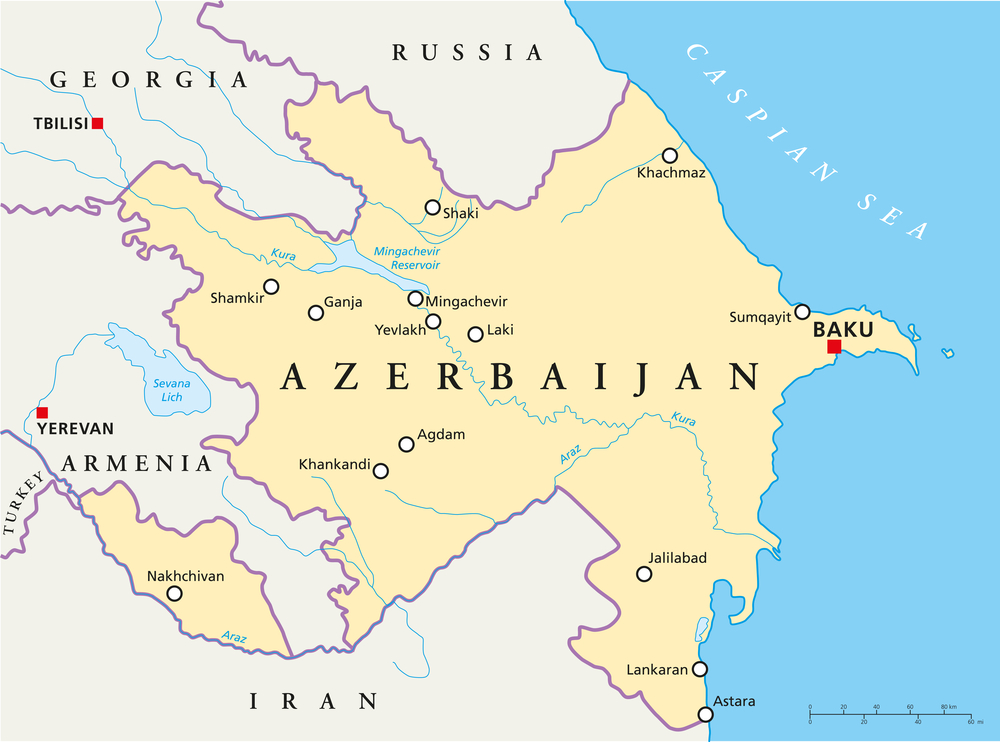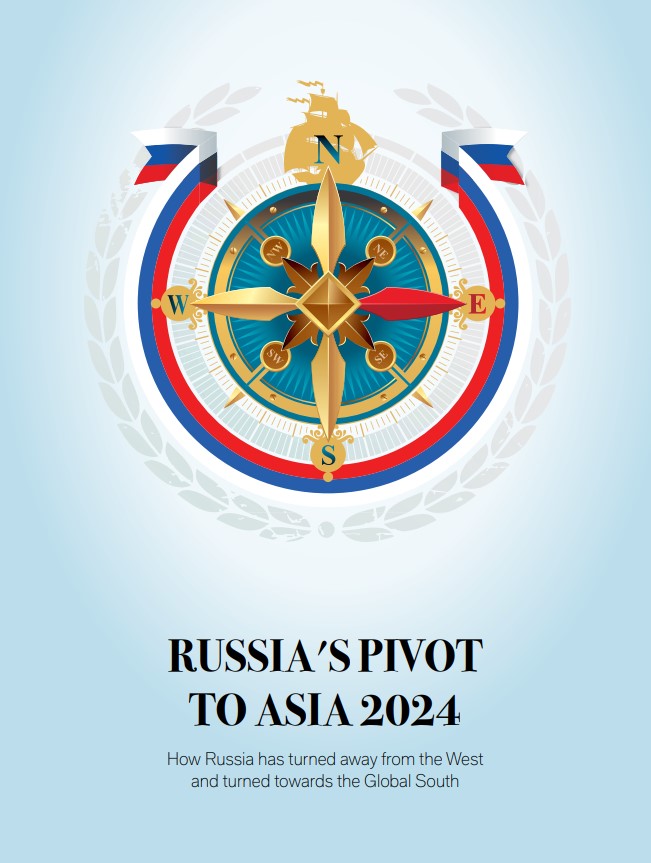Russian President Vladimir Putin has been visiting Azerbaijan on August 18-19, holding negotiations and discussions with Azerbaijani President, Ilham Aliyev. The talks are designed to address the further development of Russian-Azerbaijani relations of strategic partnership and alliance, as well as current international and regional issues” according to a Kremlin press release.
Plans are in place to adopt a joint statement by the heads of state and to sign intergovernmental and other documents.
Relations between Russia and Azerbaijan are at a very high level of allied interaction. Aliyev paid an official visit to Russia in April and had extensive discussions with Putin at that time. A great deal of attention has been placed on Azerbaijan’s growing importance to Russia as a conduit for goods transit both south and east, using its connectivity with Turkiye and Iran via the North-South Transportation Corridor and the Baikal-Amur Mainline (BAM) railway running east, with Azerbaijan’s Baku Port serving as a Western logistics port to connect with the route. Improved road connectivity between Russia and Azerbaijan is also part of the regeneration of trade ties.

In support of these infrastructure efforts, Azerbaijan’s economic relations with Russia and other EAEU countries are increasingly active and are forming a common and mutually beneficial economic space, despite the fact that Azerbaijan is not part of the Eurasian Economic Union (EAEU) trade bloc. Azerbaijan has also expressed interest in joining the BRICS.
Russia’s trade and investment ties with Azerbaijan fit into the overall pattern observable in Russia’s trade/investment relations with its immediate neighbours following the outbreak of the conflict in Ukraine in 2022. Moscow’s re-orientation of commercial ties from the EU to Asia and the Middle East benefits Russia’s neighbours and Azerbaijan is no exception.
The latter serves not only as a market for re-export to Russia, but also as a developing transit route between Russia and Iran in what constitutes the International North-South Transport Corridor (INSTC). Azerbaijan is western branch out of three routes making up the INSTC, linking Iran’s and Russia’s most populous and relatively industrialized provinces and expanding the transit trade between the two big Eurasian actors. Yet despite the growing bilateral trade, Russia is not dominating Azerbaijan’s external trade. The investments dynamic is slower, and as in the case of many other countries Russia lags behind other actors when it comes to using emerging investing opportunities. Baku and Moscow seem to work for expansion of investment ties but amid the Western sanctions Russia seems to lack resources to adequately challenge other countries’ position in the Azerbaijan market. Putin and Aliyev will be looking at fixing these bottlenecks.
Azerbaijan and Russia are mostly comfortable with where their bilateral relations are at the moment. The two countries are close politically as reflected in the agreement on enhanced cooperation in nearly all spheres signed between Moscow and Baku in February 2022. Yet despite Moscow’s cajoling Azerbaijan will likely abstain from joining Russia-led Eurasian Economic Union (EAEU). Both prefer transactional manner of bilateral relations avoiding undue expectations and full-scale alliance mode.
Trade
Bilateral trade between Russia and Azerbaijan reached US$4.4 billion in 2023, an increase of 17.5% on 2022, according to the Azerbaijani State Customs Committee. Azerbaijan’s trade with Russia accounted for 8.52% of all its foreign trade last year, with Russia being Azerbaijan’s third biggest trading partner.
Overall officials from both countries contend that given the re-orientation of Russia’s trade dynamics east, trade volumes between the two countries could double by 2026. Russian exports to Azerbaijan mainly consist of wheat, meslin, crude petroleum, crude petroleum products derived from bituminous minerals, timber, various gaseous hydrocarbons, mineral or chemical fertilizers. From November 2022 Russia also began selling gas.
Azerbaijan sends to Russia mostly animal products, plastics, rubber and rubber, machinery, equipment and apparatus, mineral products, and oil. Exporting to Azerbaijan is easily carried out from all major cities across Russia. Interregional cooperation is the engine for the development of Russian-Azerbaijani trade and economic alignment.
Further Reading

Russia’s trade and investment developments with Azerbaijan and other regional countries are comprehensively discussed in our 2024 Russia’s Pivot to Asia PDF guide. This is a complimentary download and can be accessed in English here and in Russian here.

 Русский
Русский













